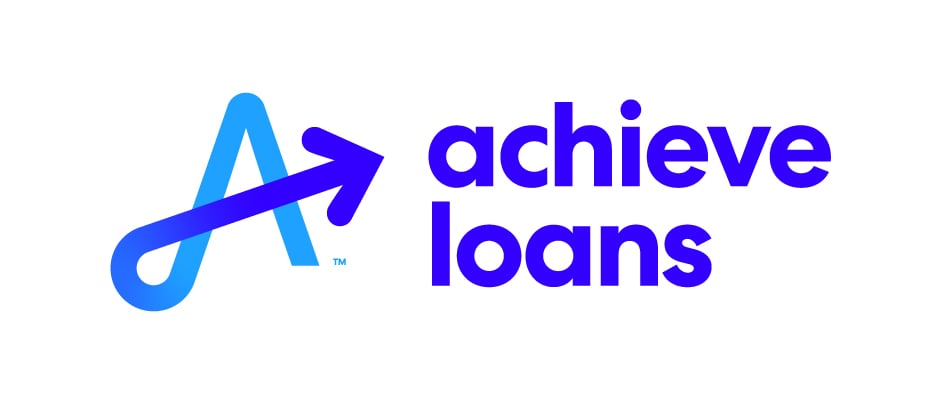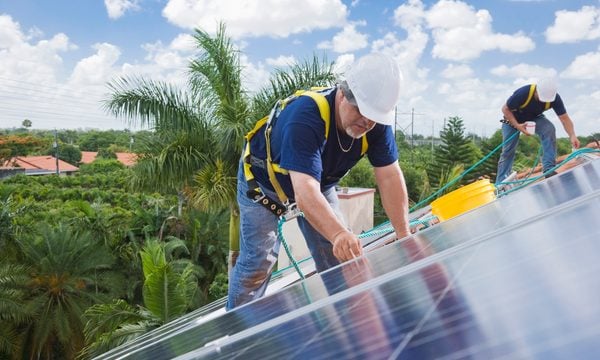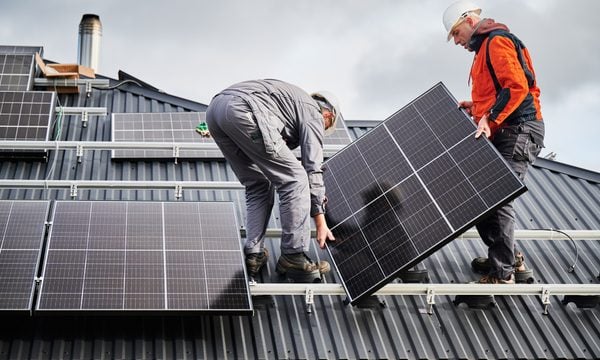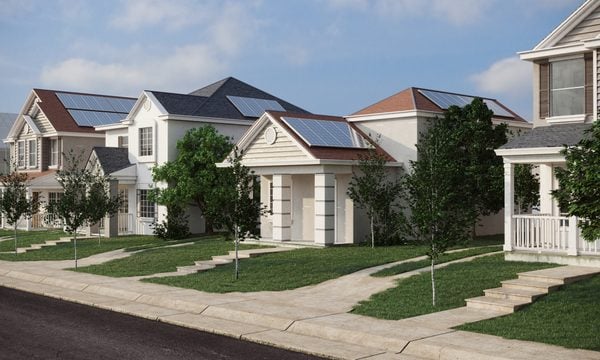Do Solar Panels Work at Night or on Cloudy Days?
Solar panels don't generate electricity at night. Solar batteries store power for use in homes when it's dark.
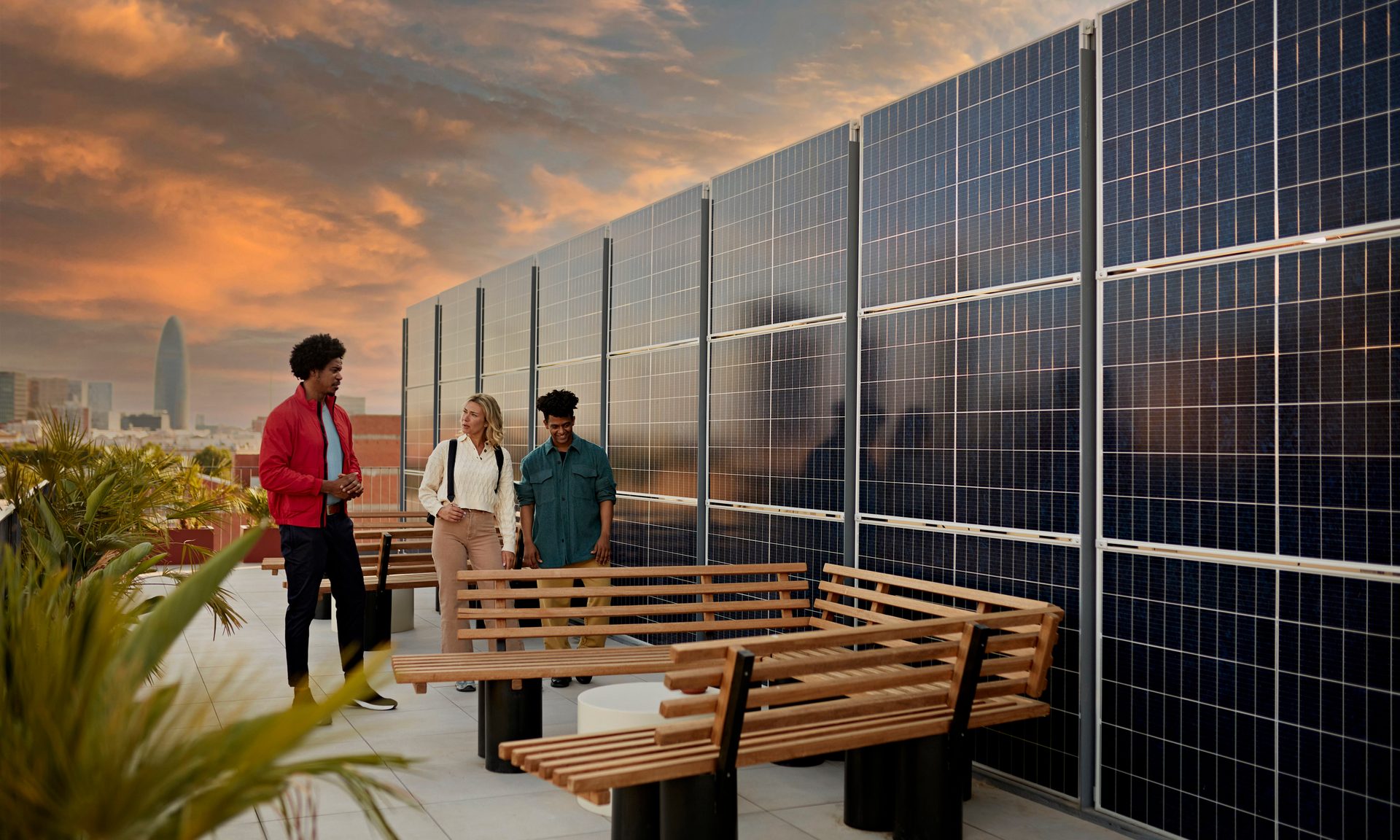
Some or all of the mortgage lenders featured on our site are advertising partners of NerdWallet, but this does not influence our evaluations, lender star ratings or the order in which lenders are listed on the page. Our opinions are our own. Here is a list of our partners.
Solar panels don't produce electricity at night. They can generate some electricity when it's cloudy. Sunlight powers solar panels. However, homes with solar batteries may be able to use solar power at night because solar batteries store excess solar electricity generated during the day for later use.
Solar is the most abundant energy resource on Earth . In fact, the Earth receives enough sunlight in an hour and a half to meet all our energy needs for a year . It’s no wonder that solar is becoming more popular in the U.S. as an energy alternative.
Can a solar panel work without sun?
Most solar panels can still generate power when it’s cloudy; they just aren’t as efficient .
There are two ways a home can still have power when it’s cloudy or dark:
- Battery storage: A solar battery stores extra energy from your solar panels and acts as a backup.
- The grid: Unless your property is far from a powerline, you won't be totally off the grid. Most homeowners are still connected to the power grid and rely on electricity from the grid to supplement their solar panels.
» MORE: How much do solar panels cost?
🤓 Nerdy Tip
Check your utility provider’s net metering program and your state’s net metering laws. Net metering allows residents to sell extra power back to the grid. It can save you money on your electric bill. How do solar panels work at night?
Technically speaking, solar panels don't generate electricity at night; they only generate power from sunlight. However, energy generated during the day can be stored in a battery system to keep your home powered through the evening.
In 2022, engineers at Stanford University developed solar cells that could generate some power at night, but it may be some time before that is commercially available .
How to choose solar panels
Every home, landscape and climate is different, and that can affect the efficiency of solar panels. Here’s what to consider when shopping for solar panels and installers.
- Rooftop panels vs. ground panels. Although solar panels work in all climates, multiple factors can affect the efficiency of rooftop systems and ground panels. The age of your roof, shade and tree cover on your property, and the size, shape and slope of your roof will help determine which solar panels work best for you. According to the U.S. Energy Department, rooftop panels perform best on south-facing roofs with a slope of 15 degrees to 40 degrees .
- Your energy efficiency. Audit your energy consumption to get an idea of how many panels your home might need to keep it running. You can invest in a professional home energy assessment or do it yourself it.
- Budget and financing options. Going solar is an investment. Installing solar panels and a storage system can cost $15,000–$35,000 depending on the size of the battery and other factors . Just a battery installation can cost anywhere from $12,000 to $22,000 . You may be eligible for federal tax credits, however, and some states offer additional solar incentives for residents. Your solar installer may also offer financing if you can’t pay upfront. Check the Database of State Incentives for Renewables & Efficiency to find policies and incentives by state.
- Compare bids. When shopping for solar panels, also shop for an installer. A North American Board of Certified Energy Practitioners (NABCEP) installer may be able to help you measure energy efficiency, find the best system set up for you and get financing within your budget. Get at least three detailed bids to compare before making this decision.
» MORE: How to compare solar quotes
🤓 Nerdy Tip
Bids should include the size and annual power production of the system, as well as price per watt or kilowatt, energy efficiency or rated power, the full cost of the installation and any warranties or routine maintenance. Can I get financing for a solar panel system?
In addition to tax incentives and rebates, there are options available. Many solar installers offer financing, but you may also be able to finance your solar investment through a home equity loan or home equity line of credit (HELOC). These options may have lower interest rates than financing with an installer, future opportunities for refinancing and possible tax benefits.
Home equity loans and HELOCs are ways to borrow against the value of your home, converting equity into cash. With a home equity loan, you receive a lump-sum payment and then pay it back at a fixed interest rate over an agreed period of time, typically from five to 30 years. HELOCs are more akin to a credit card, something you use as needed. You’ll usually have 10 years to draw from the line of credit, during which time you only have to pay interest, and after that you pay both the principal and interest. HELOC interest rates typically are variable, meaning your monthly payment could rise or fall over time. And with each of these options, you're using your home as collateral.
Advertisement
Min. credit score 600 | Min. credit score 600 |
Min. down payment N/A | Min. down payment N/A |
Another option is a solar loan. Many banks, credit unions and online lenders offer these to fund solar panels and installation, with amounts typically from $1,000 to $100,000, and annual percentage rates ranging from 6% to 36%. They function like a personal loan: you receive a lump sum and repay it in equal monthly installments over a set period, typically two to seven years. And unlike with home equity financing, there is no collateral required for a solar loan. This means your home or solar panels aren’t at risk if you miss payments, but you may have to pay late fees.
So, yes, you likely can get financing. If you go this route, compare interest rates, terms and fees with any financing package that a solar provider may offer you to ensure you get the best deal.
Frequently Asked Questions
Are solar panels expensive?
Short answer: Yes. The upfront costs can be daunting and run from $15,000 to $35,000. However, there are ways to mitigate cost, either through financing or local, state and federal tax incentives and rebates.
Are there tax incentives for going solar?
Yes. Solar PV systems installed in 2020 and 2021 may be eligible for a 26% federal tax credit. If your system is installed between 2022-2032, you may be eligible for a 30% federal tax credit.
If I don’t own my home or rent an apartment, can I still use solar energy?
Community solar programs allow renters to use energy generated by a shared solar array. They buy into the program at their budget level for a credit on their utility bill.
Article sources
NerdWallet writers are subject matter authorities who use primary,
trustworthy sources to inform their work, including peer-reviewed
studies, government websites, academic research and interviews with
industry experts. All content is fact-checked for accuracy, timeliness
and relevance. You can learn more about NerdWallet's high
standards for journalism by reading our
editorial guidelines.
- 1. National Oceanic and Atmospheric Administration. Energy On a Sphere. Accessed Mar 18, 2024.
- 2. U.S. Department of Energy. How Does Solar Work?. Accessed Mar 18, 2024.
- 3. Solar Energy Industries Association. What happens to solar panels when it’s cloudy or raining?. Accessed Mar 18, 2024.
- 4. AIP Publishing, Applied Physics Letters. Nighttime electric power generation at a density of 50 mW/m2 via radiative cooling of a photovoltaic cell. Accessed Mar 18, 2024.
- 5. U.S. Department of Energy. Homeowner’s Guide to Going Solar. Accessed Mar 18, 2024.
- 6. U.S. Department of Energy. Busted: Common Solar Myths and Misconceptions. Accessed Mar 18, 2024.
- 7. U.S. Department of Energy. Should I Get Battery Storage for My Solar Energy System?. Accessed Mar 18, 2024.
More like this
Related articles
AD
Save On Solar Without the Middleman
Free Instant Quote
on Project Solar's website

AD

Save On Solar Without the Middleman
- $750 OFF install with NerdWallet;
- SolarCare™: top-tier warranty & 25-year production guarantee;
- No sales commissions mean premium equipment & tech at up to half the price.
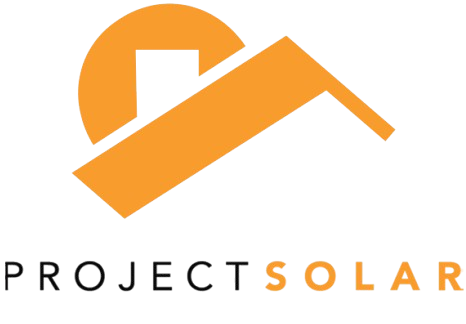
Free Instant Quote
on Project Solar's website




